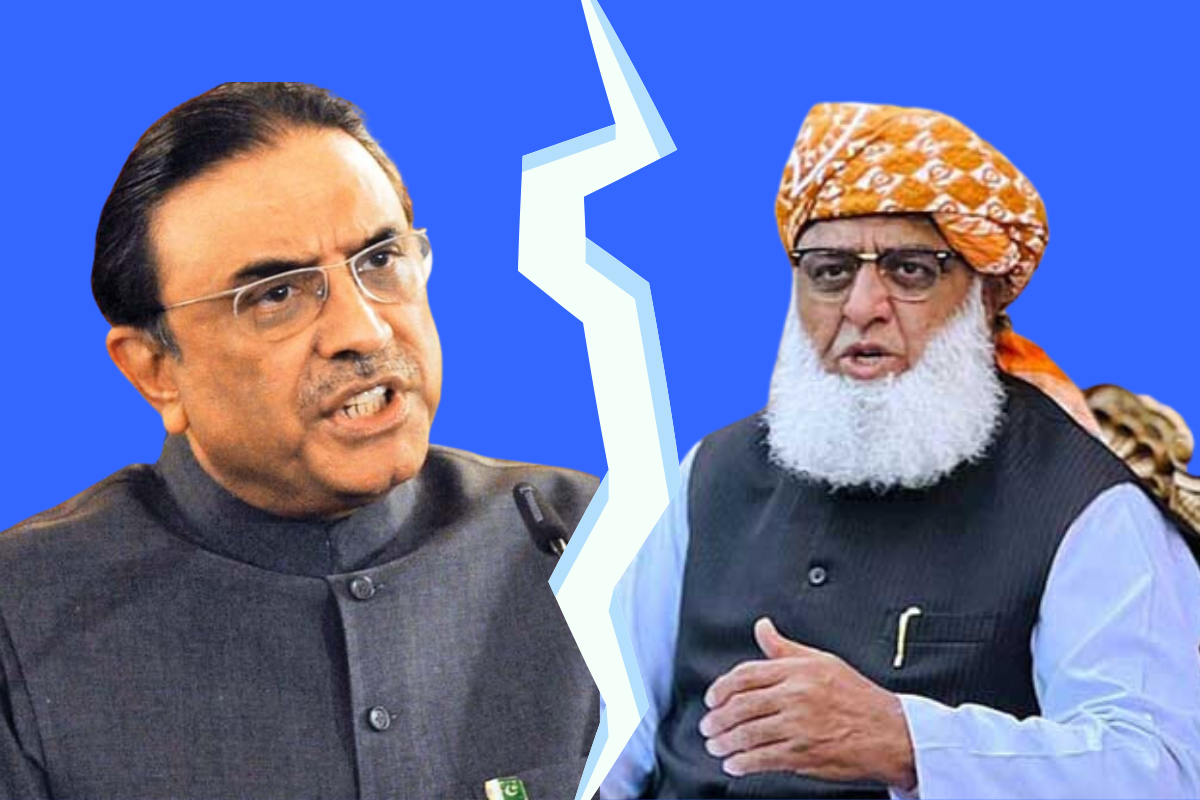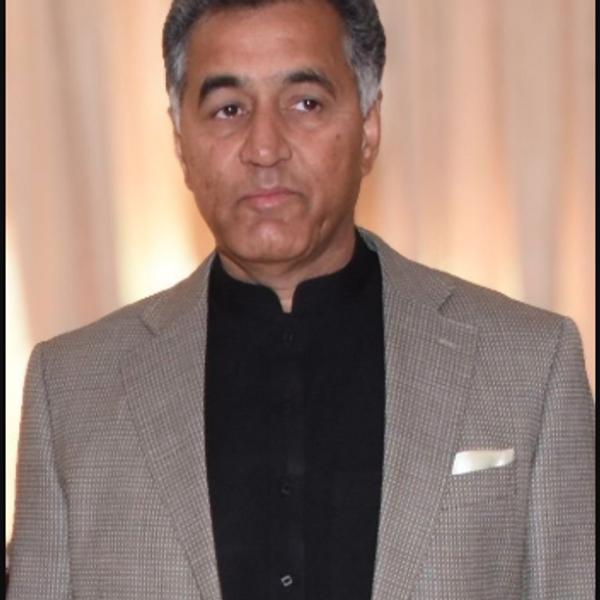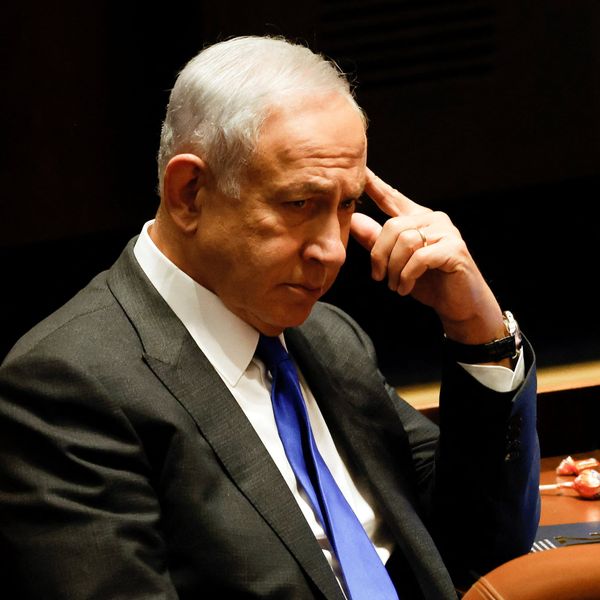Constitutional crisis? ‘Ally’ furious as Pakistan’s president ‘delays’ signing Madrasa Bill
JUI-F accuses govt and President Zardari of stalling bill promised for 26th amendment support

Javed Hussain
Correspondent
I have almost 20 years of experience in print, radio, and TV media. I started my career with "Daily Jang" after which I got the opportunity to work in FM 103, Radio Pakistan, News One, Ab Tak News, Dawn News TV, Dunya News, 92 News and regional channels Rohi TV, Apna Channel and Sach TV where I worked and gained experience in different areas of all three mediums. My journey from reporting to news anchor in these organisations was excellent. Now, I am working as a correspondent with Nukta in Islamabad, where I get the opportunity of in-depth journalism and storytelling while I am now covering parliamentary affairs, politics, and technology.

Pakistan President Asif Ali Zardari (L) and Jamiat Ulema Islam-Fazl (JUI-F) Chairman Maulana Fazlur Rehman (R).
Nukta
Under Article 75 of Pakistan's constitution, the president is to sign a bill within 10 days of parliamentary approval
JUI-F senator claims President Zardari returned the bill with objections after keeping it with him for 30 days
President's objections include threat of potential sectarianism, international backlash and possibility of unregulated foreign funding for madrasas
The controversy surrounding the Jamiat Ulema Islam-Fazl’s (JUI-F) Madrasa Registration Bill has taken a new turn. Delays in its enactment have sparked questions over potential breaches of parliamentary rules.
The bill, officially known as the Society Registration Amendment Act 2024, was passed by both the National Assembly and Senate on October 21, along with the 26th Constitutional Amendment. But is yet to be signed into law by President Asif Ali Zardari.
Critics have argued that the president's actions, including holding the bill for a period extending 10 days and raising objections after, may contravene constitutional provisions.
The constitution mandates that the president act within 10 days of a bill’s passage.
Under Article 75 of Pakistan's constitution, the president is to sign a bill within 10 days of parliamentary approval. If no action is taken, the bill automatically becomes law. The president may return it with recommendations, which parliament can reconsider in a joint session. Upon reapproval, the president must sign it within 10 days only.
However, Senator Kamran Murtaza of the Jamiat Ulema Islam-Fazl (JUI-F) claims President Zardari returned the bill with objections after keeping it with him for 30 days.
He stated that the president kept the bill for 10 days due to a trip to Dubai. Upon his return, he sent the bill back to the speaker of the National Assembly for a minor amendment. After the amendment, the bill was sent back to the president, and now it has been returned to parliament again with objections.
The JUI-F senator claimed that President Zardari deliberately delayed signing the bill because the government had its role fulfilled by passing the 26th Constitutional Amendment.
In response to Senator Murtaza's claim about the bill being sent back to parliament, Nukta was informed by the National Assembly Secretariat that the bill was initially returned from the President House for a minor correction.
After making the necessary changes, the bill was sent back to the president, and according to the constitution, the president still has time to review and consider the bill.
What is the bill about
Alongside the 26th Constitutional Amendment, Pakistan’s parliament in a recently held midnight session also passed amendments simplifying the long-contested process of registering madrassas.
The amendments were introduced in clause 21 of the Societies Registration Act of 1860 – a law previously used to register seminaries in Pakistan till 9/11.
Introduced by Federal Law Minister Azam Nazeer Tarar, the law mandates that all madrassas offering religious education register with the government.
The amendment requires unregistered madrassas to complete registration within six months, while newly established ones must register within a year of founding. A madrassa with multiple branches is only required to register once, simplifying the administrative process for these institutions.
The bill mandates that madrassas conduct regular audits and submit copies of these reports to the relevant departments. According to Clause 4 of Article 21 of the Amendment Act, no madrassa is permitted to teach materials promoting militancy, sectarianism, or religious hatred. However, comparative religious studies and science instruction within the context of the Holy Quran and Ahadith teachings are allowed, and madrassas are authorized to include general and technical studies in their curriculum.
Registered madrassas are also exempt from registering under any other laws, and the amendment recognizes madrassas’ essential role in Pakistani society, emphasizing the significance of religious education for all Muslims. The act aims to simplify and expedite the registration process, addressing challenges madrassas previously faced in obtaining formal recognition.
The president’s objections
As per details of the objections obtained by Nukta, the major concerns highlighted by the president include potential sectarianism, international backlash – including from the FATF, IMF, and the European Union - and the possibility of unregulated foreign funding for madrasas.
Additionally, the president has highlighted existing laws, like the 1860 Act, as sufficient, while questioning the compatibility of the proposed law with certain educational disciplines like fine arts.
The bill has become a pressing issue for the government, torn between mitigating international concerns and addressing JUI-F's grievances.
Critics argue that these concerns were already addressed during extensive parliamentary deliberations and that the president’s intervention undermines the legislative process.
‘Attempt to sideline JUI-F’
Senator Murtaza said Jamiat Ulema-e-Islam (JUI) chief Maulana Fazlur Rehman is furious with the government, particularly the PPP, over what he perceives as their use of him to pass the 26th Constitutional Amendment.
Sources within the party say the Maulana, upset after reviewing President Zardari’s objections to the bill, has insisted the government withdraw them or face strong opposition.
He has reportedly also discussed the matter with Prime Minister Shehbaz Sharif, President Zardari, and the leadership of the ruling Pakistan Muslim League-Nawaz (PML-N) and Pakistan Peoples Party (PPP), calling the objections baseless.
The JUI-F chief has warned them of potential protests unless a dignified resolution was reached and also accused the government of “capitulating to international pressures” at the expense of Pakistan’s sovereignty.
‘Withdrawing objections also unconstitutional’
Journalist MB Soomro pointed out that keeping the bill for over 30 days without resolution is a clear violation of parliamentary rules. He added thaft the president is not authorized to make even a minor change in the bill passed by parliament.
“If the president wants, he can pass an ordinance for this amendment. Keeping the bill with him for 30 days is a violation of the constitution,” he said.
In light of the JUI-F’s demand, Soomro added that if the president withdraws his objections now and approves the bill, it will also be considered a violation of the constitution.
Sources indicate that the National Assembly Secretariat and the legal team at the presidency are working intensively to resolve the issue. However, the question remains: If the president withdraws his objections and approves the bill, how will this action be interpreted constitutionally?
When Nukta reached out to former Attorney General Irfan Qadir, the legal advisor to the president, to verify the information, he declined to comment on the matter, stating that he was unable to provide any details or make any statements regarding the issue.
The government is reportedly making efforts to prevent a backlash from international organizations and address Maulana Fazlur Rehman's concerns, but also working to ensure the issue does not escalate publicly.






Comments
See what people are discussing